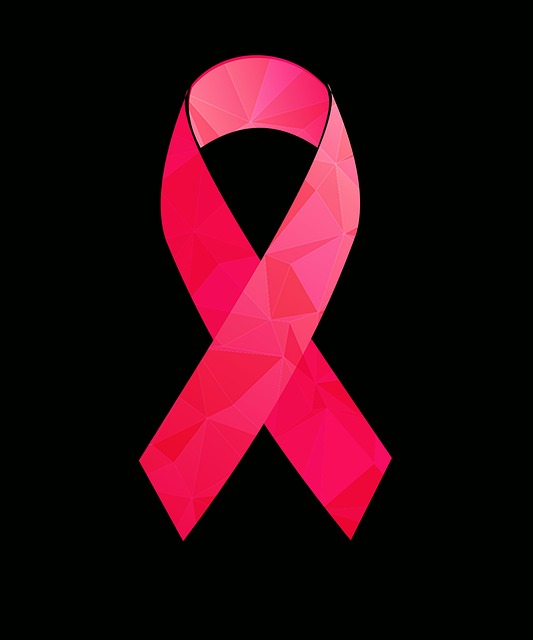October is Breast Cancer Awareness month and pink ribbons abound. Everywhere you look, people are wearing pink and various organizations are engaging in fundraising for cancer research. For survivors of the disease, this outpouring of hope is welcome, but at the same time, these visual reminders of their fight can bring up symptoms of post traumatic stress disorder (PTSD).
Even though it is best known for affecting war veterans or people who have been through violent events like mass shootings, PTSD is also found in cancer survivors. “It’s common for cancer patients, even if they don’t have full-blown PTSD, to have some of the symptoms of it,” says Fremonta Meyer, MD, of Dana-Farber’s department of Psychosocial Oncology and Palliative Care.
The color pink isn’t the only thing that can trigger PTSD in breast cancer survivors. Simple actions such as driving past their treatment centers or seeing cancer care commercials on the television can do it, as can hearing about someone else’s diagnosis (or breast cancer scare).
Cancer And PTSD Symptoms
A contract employee of ours went through treatment for stage 1 breast cancer last year. She recently told me how her niece’s routine exam triggered her own PTSD earlier this month.
During an annual exam, the doctor found a lump in her niece’s breast, which led to a mammogram and ultrasound. The results were negative, but our employee found herself crying for no reason, depressed, and sleepless for about two weeks following her niece’s “all clear,” despite the fact that she was obviously very happy that her niece was fine. When she mentioned her symptoms to me, it was clear that she was experiencing some post traumatic stress.
Symptoms of PTSD can include any of the following:
- Insomnia
- Startling easily
- Inability to think clearly or concentrate
- Re-experiencing the traumatic event – this can happen through nightmares, flashbacks, or memories.
- Avoidance of situations or places that remind the person of the event
- Feeling defensive, fearful, or angry
- Negative self-perceptions
These symptoms could be triggered when the person encounters certain sights, smells, or sounds that remind them of their diagnosis, going through chemotherapy, or other cancer treatments. Additionally, post treatment screening, testing, and waiting for test results can bring the original trauma back to the forefront.
In general, PTSD symptoms begin soon after the initial traumatic event, but sometimes they do not appear for months or even years after the trauma occurred. This happens because, for cancer survivors, the traumatic event continues from the time of diagnosis to the end of treatment, which can take a year or longer. Thereafter, survivors often spend years worrying about recurrence, which may keep their PTSD active.
It also should be noted that the parents of children who go through cancer treatment can also suffer from PTSD, with similar triggers and symptoms.
Factors Contributing To The Development Of PTSD After A Cancer Diagnosis
The National Cancer Institute (NCI) at cancer.gov reports that “certain physical and mental factors that are linked to PTS [post traumatic stress] or PTSD have been reported in some studies:
Physical factors
- Cancer that recurs (comes back) was shown to increase stress symptoms in patients.
- Breast cancer survivors who had more advanced cancer or lengthy surgeries, or a history of trauma or anxiety disorders were more likely to be diagnosed with PTSD.
- In survivors of childhood cancers, symptoms of post-traumatic stress occurred more often when there was a longer treatment time.
Psychological, mental and social factors
- Previous trauma.
- High level of general stress.
- Genetic factors and biological factors (such as a hormone disorder) that affect memory and learning.
- The amount of social support available.
- Threat to life and body.
- Having PTSD or other psychological problems before being diagnosed with cancer.
- The use of avoidance to cope with stress.
Cancer patients may have a lower risk of post-traumatic stress if they have the following:
- Good social support.
- Clear information about the stage of their cancer.
- An open relationship with their healthcare providers.”
Treatment for Cancer PTSD
Therapy for cancer-related PTSD is similar to treatment for other forms of the disorder and usually involves a combination of therapies:
- Relaxation techniques, such as deep breathing, mindfulness training, and meditation can help survivors release muscle tension, lower blood pressure, and reduce anger and anxiety levels.
- Cognitive Behavioral Therapy (CBT) helps survivors challenge and change the negative thoughts and thinking patterns that are causing them stress. CBT helps people cope with their situation in a healthy way.
- Support groups for survivors in which coping skills and emotional support can come from others who have gone through similar experiences.
- Sometimes medications are used in the short term to help survivors who have severe trauma symptoms or flashbacks.
Above all, therapy helps the person understand that a disorder like this one develops because of extraordinary stress, not because of weakness.
The key is to get treatment early. Symptoms and mental distress are often long-lasting and can affect your relationships, your job, and your overall health. Please seek help before these symptoms have a chance to further disturb your life.
We Can Help
If you or someone you love have gone through cancer treatment and find that you have some PTSD after your treatment, the mental health professionals at The Center for Treatment of Anxiety and Mood Disorders in Delray Beach, Florida, can help. For more information, contact us or call us today at 561-496-1094.
Resources
PDQ® Supportive and Palliative Care Editorial Board. PDQ Cancer-Related Post-traumatic Stress. Bethesda, MD: National Cancer Institute. Available at: https://www.cancer.gov/about-cancer/coping/survivorship/new-normal/ptsd-pdq. Accessed 10/12/2019. [PMID: 26389374]
Dr. Andrew Rosen
Dr. Andrew Rosen PHD, ABPP, FAACP is a Board-Certified Psychologist and the Founder and Director of The Center for Treatment of Anxiety and Mood Disorders, as well as, the Founder of The Children’s Center for Psychiatry Psychology and Related Services.





